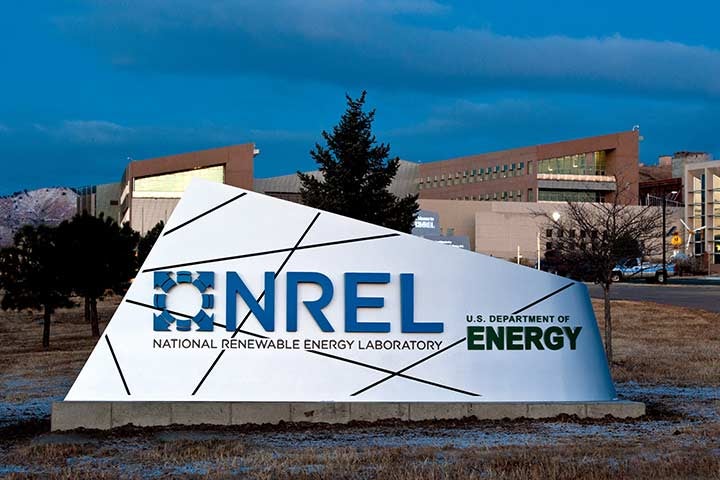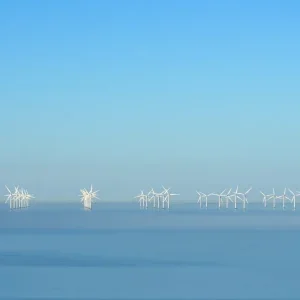
The U.S. Department of Energy (DOE) has selected a research consortium founded by a quartet of national labs — including the National Renewable Energy Laboratory (NREL) — for a five-year, $100-million Energy-Water Desalination Hub to address water security issues in the United States.
Called the National Alliance for Water Innovation (NAWI), the consortium is led by the team of NREL, Lawrence Berkeley National Laboratory (Berkeley Lab), National Energy Technology Laboratory (NETL), and Oak Ridge National Laboratory (ORNL). Its mission is to focus on early-stage research and development (R&D) for energy-efficient, cost-competitive desalination technologies, as well as ways for treating nontraditional water sources for multiple end uses.
NAWI’s vision for creating a stable and resilient water supply for agriculture, industry, and communities involves a circular water economy, where water is treated to fit-for-purpose standards and reused locally, rather than transporting freshwater long distances. Its goal is to advance a portfolio of novel technologies to bring 90% of nontraditional water sources (e.g., seawater, brackish water, and produced waters) to cost-competitive status with existing water sources within 10 years. NAWI will not only conduct research but also develop a roadmap to prioritize the highest impact technology options, then identify and solicit projects to support those priorities. Headquartered at Berkeley Lab, the NAWI research alliance includes the four national laboratories, 19 founding university partners, and 10 founding industry partners. It is supported by DOE’s Advanced Manufacturing Office.
“NREL’s research is informed by our globally recognized expertise in decision-science and analysis,” said Johney Green Jr., associate laboratory director for NREL’s Mechanical and Thermal Engineering Sciences directorate. “Combined with our research experience with pilot-scale renewable energy-powered desalination technologies, as well as our deep technoeconomic analysis and modeling expertise, NREL is able to provide market insights and identify knowledge gaps, which will be incredibly valuable for this effort.”
NREL’s integrated water systems research, which focuses on the nexus of the energy, water, land, atmospheric, and urban sectors, is a perfect match for the Hub’s work. From high-resolution systems modeling capabilities to world-class integration infrastructure facilities, NREL can simulate water and energy systems together at scale. In addition, NREL’s advanced water treatment and integrated water technology research spans fundamental development to validation, demonstration, and deployment.
Founded in 2017, NAWI consists of two parts: the research consortium and the larger NAWI Alliance, which includes more than 180 U.S. public- and private-sector organizations.
“Accomplishing the goals of the Hub requires input from industry experts from across the clean water spectrum,” said Matt Ringer, NREL’s Advanced Manufacturing Program director and NAWI partnerships director. “The NAWI Alliance is an inclusive organization that brings their valuable insights to the forefront, helping guide the Hub’s strategic direction.”
Alliance members will play a key role in recommending future R&D investments for desalination technologies, as well as identifying key barriers and opportunities for technology advancements that could benefit multiple sectors. Membership for the Alliance is open. Sign up to be a member, or contact Matt Ringer for more information.






